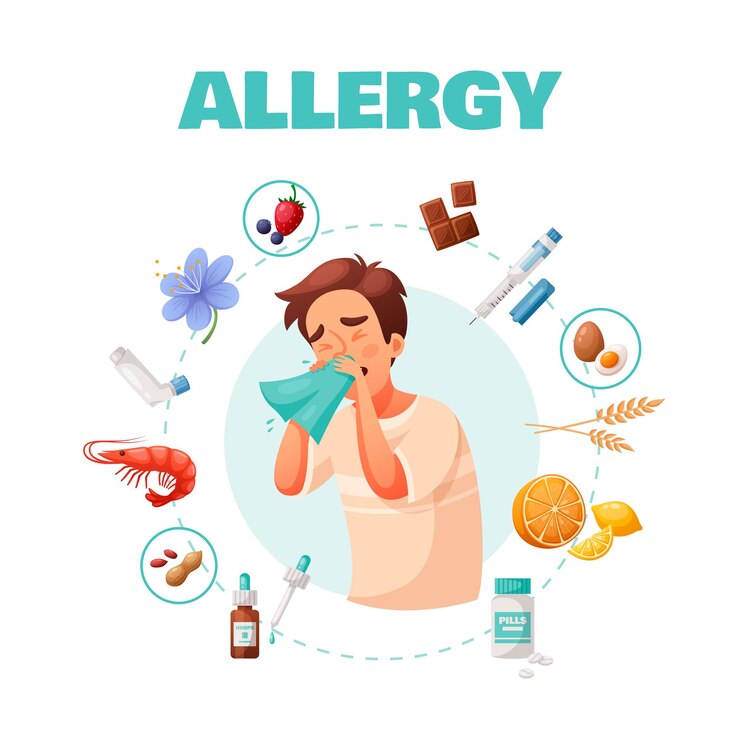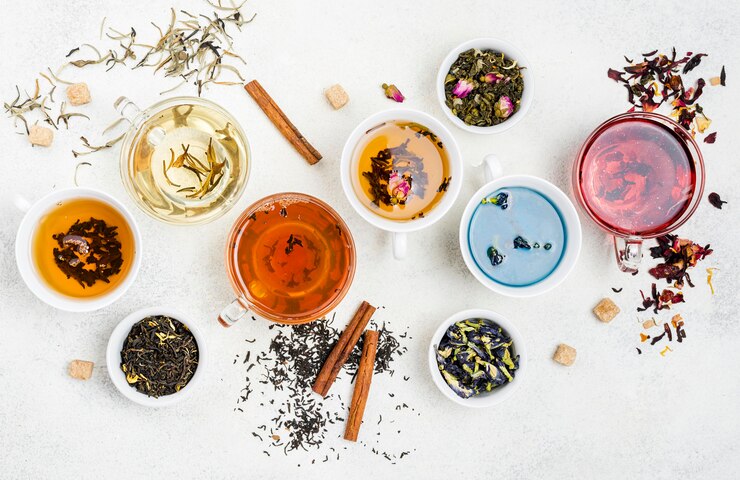
Sneezing, a runny nose, watery eyes, and itchy ears—these symptoms can really bring you down. Even if your seasonal allergy symptoms are mild, they’re still bothersome, prompting you to find ways to alleviate or even eliminate them.
**Understanding Seasonal Allergies**
Your immune system’s job is to differentiate between harmless and harmful substances to keep you healthy. When it mistakenly tags something safe, like pollen, as dangerous, it reacts by releasing histamines and other immune substances. This causes allergy symptoms like sneezing or a runny nose. These symptoms may vary depending on the season, due to factors like different types or amounts of pollen, or your health status at the time.
Common allergy symptoms include congestion, runny nose, and watery eyes. The increase in histamine can also worsen skin conditions like rosacea or acne, as histamine plays a role in inflammation, affecting many skin disorders.
The real issue isn’t necessarily the pollen from that birch tree in your yard. It’s how your body produces or breaks down histamine. Histamine serves vital functions, but how your body handles it is key. Antihistamines offer relief, but they don’t address the underlying issue, and long-term use might even worsen the condition.
**What is Histamine?**
Histamine is a nitrogen compound found in various foods and produced by immune cells to trigger inflammation when allergens are present. In the gut, it regulates functions and acts as a neurotransmitter. Once produced, histamine is broken down by two enzymes—N-methyltransferase and diamine oxidase (DAO). People with low DAO activity might face histamine intolerance.
Why does histamine become problematic for some? It could be an excess production or an inability to break it down due to enzyme deficiencies, which can be genetic or linked to health status. Overproduction may stem from gut issues since certain bacteria produce histamine while others help break it down. Imbalanced gut bacteria could lead to increased histamine and allergies.
A diet high in processed foods and low in prebiotics might make you more sensitive to histamine and prone to allergies. Antibiotics can also disrupt gut bacteria balance, impacting allergy susceptibility. It often boils down to gut health!
**10 Natural Remedies for Seasonal Allergies**
These remedies either inhibit histamine release, support gut health, or reduce body inflammation. Consult a healthcare practitioner for the best options and doses.
1. **Quercetin**: This plant compound, found in onions, broccoli, and fruits like apples and berries, acts as a natural antihistamine and possesses anti-allergic properties. Choose supplements with high bioavailability.
2. **NAC (N-Acetyl Cysteine)**: NAC, derived from the amino acid cysteine, helps form glutathione, a powerful antioxidant crucial for detoxification and immune system maintenance. It also helps break up mucus. Choose reputable brands for supplements.
3. **Foods Rich in Vitamin C**: Boost your immune system and lower histamine levels by eating bell peppers, berries, citrus fruits, broccoli, cauliflower, and apples. Include raw foods in your diet to maximize vitamin C intake.
4. **Stinging Nettle**: Traditionally used to relieve allergy symptoms, nettle can reduce inflammation and congestion effectively.
5. **Limit Certain Foods**: Reduce inflammation-causing foods like sugar, gluten, and dairy. Avoid foods you’re sensitive or allergic to, even mildly, as they can exacerbate allergy symptoms.
6. **Eat an Anti-Inflammatory Diet**: Opt for a colorful, whole foods-based diet to boost energy, skin health, and digestion while reducing allergy symptoms.
7. **Avoid Fermented Foods Temporarily**: During allergy season, limit fermented foods, as they contain histidine, which converts to histamine.
8. **Get Outside Sensibly**: Contrary to advice urging you to stay inside, exposure to nature develops a healthy immune response. Avoid high pollen exposure, but don’t shun nature entirely.
9. **Incorporate Adaptogens**: Adaptogens improve resilience against environmental and physiological stressors, promoting balanced immune function. Look for reishi, maca, or ashwagandha supplements.
10. **Clean Nasal Passages**: Use saline sprays or a Neti pot regularly to flush out pollen and reduce reliance on medications.
Take your time exploring these options. Test a few at once and observe how your body responds. Hopefully, these suggestions will help alleviate your allergies, allowing you to enjoy the spring and summer seasons!


